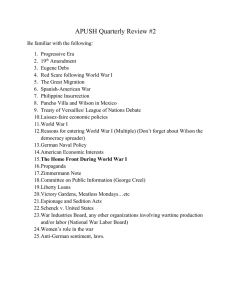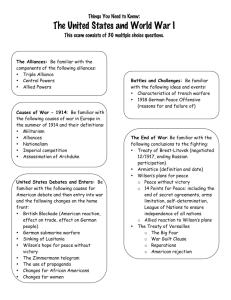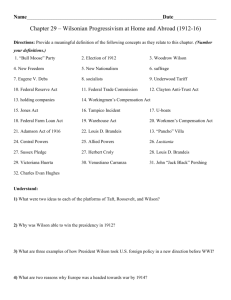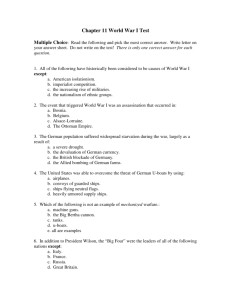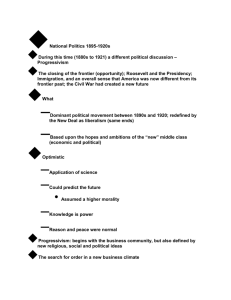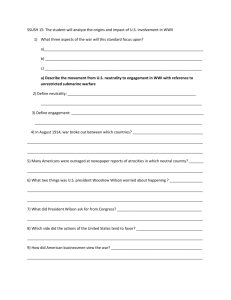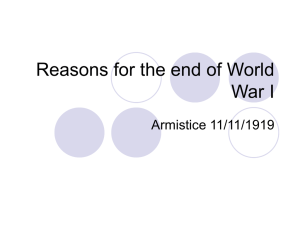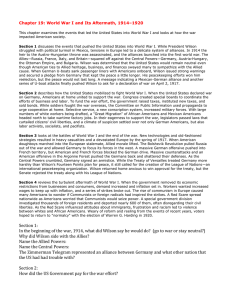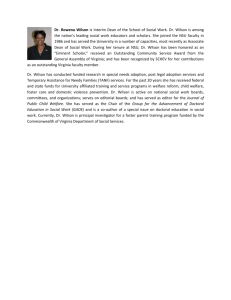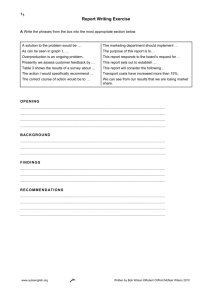11.3 The War at Home
advertisement
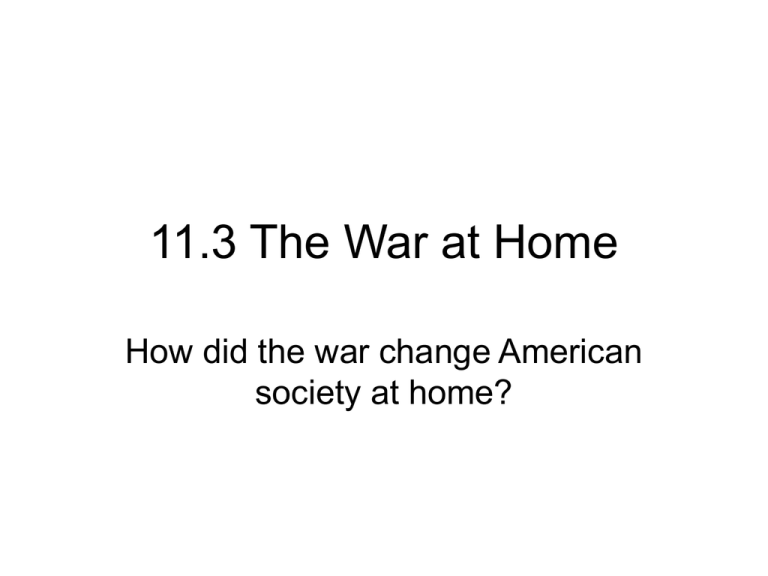
11.3 The War at Home How did the war change American society at home? Congress Gives Power to Wilson • The U.S. needed the help of industry to fight the war; the economy had to change from making consumer goods to making weapons and war supplies • Congress gave direct control over much of the economy to President Wilson • He had the power to fix prices and regulate war-related industries Continued • Wilson created the War Industries Board (WIB), an agency run by Bernard M. Baruch, which helped boost industrial production by 20 percent • Other federal agencies regulated the economy for the war effort, controlling railroads, coal, gasoline, and heating oil • Many workers joined unions due to losing money from inflation; because of this, Wilson established the National War Labor Board to help improve working conditions and settle disputes between management and labor Selling the War • The government needed to raise money for the war, and did so by increasing several kinds of taxes and selling war bonds; volunteers, celebrities, and newspapers all promoted the bonds for free • To popularize the war, the government created the Committee on Public Information (CPI), the nation’s first propaganda agency, headed by George Creel, a former muckraking journalist • He used artists and advertising people to create thousands of posters, paintings, and cartoons to promote the war Attacks on Civil Liberties Increase • The war brought out many anti-immigrant feelings, especially against Germans; Americans with German sounding names lost jobs, orchestras refused to play German music, and some towns with German names changed them • Congress passed the Espionage and Sedition Acts to punish people who did not support the war effort in any way • These laws violated the First Amendment, and led to 6000 arrests and 1500 convictions for antiwar activities, especially against socialists and union leaders The War Encourages Social Change • The war sped up the Great Migration, which was the movement of thousands of African Americans from the South to cities of the North; they wanted to escape racial discrimination and find jobs in Northern industries • American women did jobs that had previously been done only by men; their activities made them more visible and soon after the war, women were finally granted the right to vote
